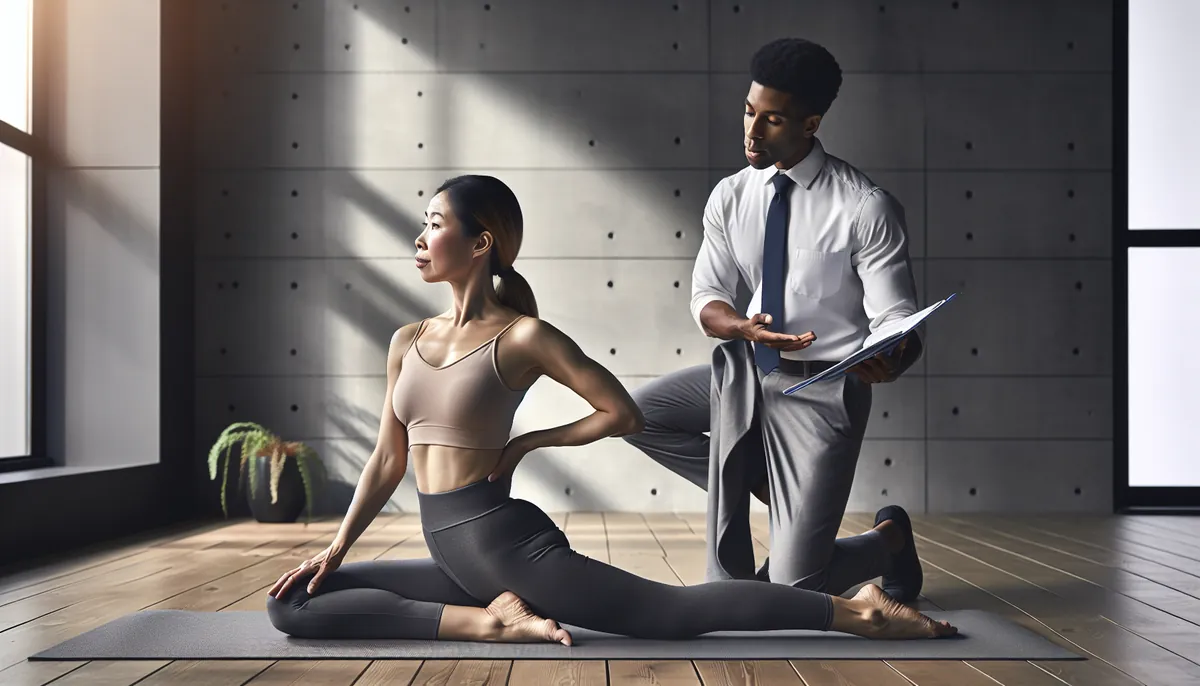Poor posture is a modern epidemic affecting millions who spend hours hunched over devices or sitting at desks. The good news? Yoga offers powerful tools to improve alignment, strengthen core muscles, and develop better postural awareness. Let's explore how yoga can transform your posture and relieve associated pain.
Understanding Postural Problems
Before diving into solutions, it's important to understand what creates poor posture. Common issues include:
- Forward head posture from looking down at phones
- Rounded shoulders from computer work
- Anterior pelvic tilt from prolonged sitting
- Weak core muscles that fail to support proper alignment
- Tight hip flexors that pull the spine out of alignment
Benefits of Yoga for Posture
Yoga uniquely addresses postural issues through:
- Increased body awareness
- Strengthened core muscles
- Improved spinal alignment
- Enhanced flexibility in tight areas
- Better balance and stability
Essential Poses for Better Posture
1. Mountain Pose (Tadasana)
This fundamental pose teaches proper alignment from the ground up:
- Stand with feet hip-width apart
- Ground through all four corners of each foot
- Engage your thighs and draw your belly in
- Stack your shoulders over your hips
- Lengthen your spine and crown of head toward ceiling
2. Cat-Cow Flow (Marjaryasana-Bitilasana)
This gentle flow increases spinal mobility and awareness:
- Start on hands and knees
- Inhale: Drop belly, lift chest and tailbone (Cow)
- Exhale: Round spine, tuck chin (Cat)
- Move slowly between positions 5-10 times
3. Cobra Pose (Bhujangasana)
Strengthens the upper back and counteracts slouching:
- Lie face down, hands under shoulders
- Press tops of feet into mat
- Lift chest while keeping low belly engaged
- Draw shoulder blades together and down
- Keep neck long and gaze slightly downward
4. Bridge Pose (Setu Bandha Sarvangasana)
Opens chest and strengthens posterior chain:
- Lie on back, knees bent, feet hip-width apart
- Press through feet to lift hips
- Clasp hands beneath body
- Keep neck neutral and chin away from chest
Daily Practice Tips
Morning Routine
Start your day with these alignment practices:
- 5 rounds of Cat-Cow
- 2-minute Mountain Pose
- 3 gentle Bridge Poses
- 2 held Cobra Poses
Desktop Breaks
Take regular breaks to reset your posture:
- Set hourly reminders
- Stand in Mountain Pose for 30 seconds
- Do gentle shoulder rolls
- Practice seated cat-cow stretches
Props and Modifications
Use these tools to support your practice:
- Blocks under hands in Cobra for wrist comfort
- Bolster under hips in Bridge for support
- Wall alignment for Mountain Pose awareness
For more support with props, check out our guide on "Transform Your Practice with Yoga Props".
Common Mistakes to Avoid
- Forcing alignment without proper engagement
- Neglecting breath awareness
- Rushing through poses
- Skipping warm-ups
- Inconsistent practice
Progressive Training
Develop your postural awareness gradually:
Week 1-2
- Focus on Mountain Pose alignment
- Practice basic breath awareness
- Introduce gentle Cat-Cow flows
Week 3-4
- Add Bridge Pose
- Increase hold times
- Incorporate Cobra Pose
Week 5-6
- Combine poses into flows
- Practice longer holds
- Add more challenging variations
Lifestyle Integration
Support your yoga practice with:
- Ergonomic workspace setup
- Regular movement breaks
- Mindful sitting and standing habits
- Consistent sleep posture awareness
Measuring Progress
Track your improvement through:
- Weekly photos of your natural stance
- Posture check-ins throughout the day
- Noting energy levels and pain reduction
- Recording flexibility gains
When to Seek Help
Consult a healthcare provider if you experience:
- Persistent pain
- Numbness or tingling
- Severe stiffness
- Limited range of motion
Conclusion
Improving posture through yoga is a journey of awareness and consistent practice. Start with these foundational poses and gradually build your practice. Remember, small daily actions lead to significant long-term changes in your postural patterns.
Begin your posture improvement journey today with just 10 minutes of practice. Notice how your body feels, and make adjustments as needed. Which pose will you try first? Share your experience in the comments below!
Remember to approach this practice with patience and consistency. Your spine and future self will thank you for the investment in better posture today.
